Volkswagen's 800,000 Sales Goal in US by 2018 is Definitely Toast
It was a lofty goal, a possibility at one point made believable by a sudden onslaught of seemingly indisputable evidence.
Volkswagen Of America determined that in 2018 the brand would generate 800,000 U.S. sales.
Indeed, between the industry’s doldrums in 2009 and 2012 the Volkswagen brand recorded a 104-percent improvement as U.S. auto sales rose by a far more modest 39 percent.
The task then seemed simple enough. After proving they could double their volume over the span of just three years, Volkswagen needed another doubling over the span that was twice as long. Which, it turns out, wasn’t to be so easy.
Long before the latest troubles struck – before a late-September diesel emissions scandal cut the automaker down at the knees, before the company’s U.S. CEO testified before a typically hostile congressional subcommittee, before it was known that the brand’s MY2016 diesel-powered cars wouldn’t be certified for sale – Volkswagen’s U.S. sales trend was beginning to veer away from the stated goal. As the market steadily improved, Volkswagen’s U.S. sales in 2013 slid seven percent, fell another 10 percent in 2014, and were down three percent through the first eight months of 2015.
Volkswagen wanted to sell 800,000 cars in America in 2018? In 2015, Volkswagen will only sell 350,000 if they’re struck by dumb luck, a stroke of serendipitous karma, and the kind of fortuitous bounce that would make Bubba Watson blush.
Granted, Volkswagen’s own bosses have long expressed their own doubts about the 800K goal. “We have to have realistic targets,” U.S. CEO Michael Horn said last year. Horn went on to clarify the accuracy of the vision, but questioned the timing.
Now, of course, we’re anticipating a severe downward swing in the numbers. While it’s true that gas-powered models accounted for the lion’s share of Volkswagen’s U.S. sales, the 2.0-liter TDI diesel was still fitted to approximately 53,000 of the vehicles Volkswagen sold in the U.S. in the first three-quarters of 2015.
Subtract those sales from the equation, even without the harm done to the brand’s image, and Volkswagen’s market share in the first nine months of this year would have stood at 1.6 percent — not the already disappointing 2.0 percent the brand actually achieved thus far — and that’s before you begin to calculate those sales going elsewhere.
With sales slightly south of flat through the first nine months of 2015 and the diesel issue causing only limited harm at the tail end of September, October’s results will more accurately project the outcome for the near future.
Yet even in a best case scenario, if Volkswagen maintained its sales pace across its lineup with the exception of a complete loss of diesel sales, the brand would likely record only 23,500 October sales, earning market share of only 1.7 percent, a decrease of a half percentage point, year-over-year.
In that best case October scenario, using those assumptions to project a full year’s worth of figures, Volkswagen would sell only 290,000 new vehicles in a calendar year.
True, those figures don’t take into account new product launches. A larger Tiguan, a proper midsize crossover, a refreshed Passat, a next-generation Jetta, a de-badged special edition Golf R SportWagen in brown with a 7-speed manual transmission inherited from the Golf’s Porsche 911 corporate cousin could, theoretically, all make a difference. Well, probably not that last one.
But those best case scenarios also fail to take into account the damage done to the whole Volkswagen product range. This is a company that wasn’t exactly currying large amounts of favour in the U.S. market, where Volkswagen’s market share is little more than half what Volkswagen manages north of the border in Canada; one-seventh of what Volkswagen earns south of the border in Mexico.
Math is hard. But we can do a little addition, multiplication, and subtraction when it’s absolutely required. Even if Volkswagen Of America doubles our best-case-scenario October projections in the next three years by completely flipping its sorely tarnished reputation on its head, they still won’t be selling 800,000 new vehicles per year.
Not even close.
Timothy Cain is the founder of GoodCarBadCar.net, which obsesses over the free and frequent publication of U.S. and Canadian auto sales figures. Follow on Twitter @goodcarbadcar and on Facebook.
More by Timothy Cain
Latest Car Reviews
Read moreLatest Product Reviews
Read moreRecent Comments
- JLGOLDEN Our family bought a 2012 Murano AWD new, and enjoyed it for 280K before we sold it last month. CVT began slipping at 230K but it was worth fixing a clean, well-cared for car. As soon as we sold the 2012, I grabbed a new 2024 Murano before the body style and powertrain changes for 2025, and (as rumored) goes to 4-cyl turbo. Sure, the current Murano feels old-school, with interior switchgear and finishes akin to a 2010 Infiniti. That's not a bad thing! Feels solid, V6 sounds awesome, and the whole platform has been around long enough that future parts & service wont be an issue.
- Zipper69 Prices start $69,995....Warlock $54,260.....How's that again?
- V8-1 Go hybrid and wait for Toyota to finish its hydrogen engine and generator/separator.
- Poltergeist I expect this will go over about as well as the CR-Z did 15 years ago.
- Michael S6 Welcome redesign from painfully ugly to I may learn to live with this. Too bad that we don't have a front license plate in Michigan.



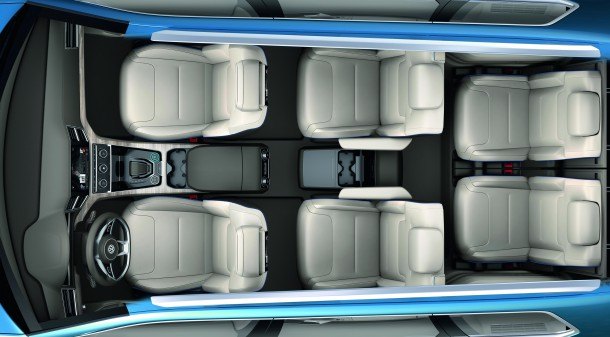

















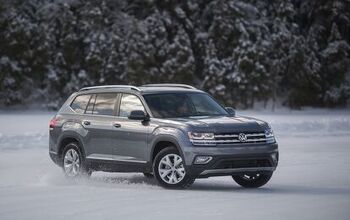





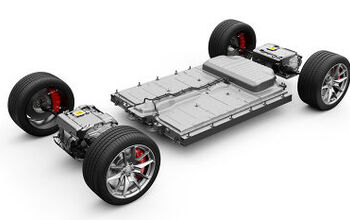
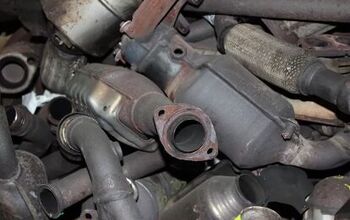




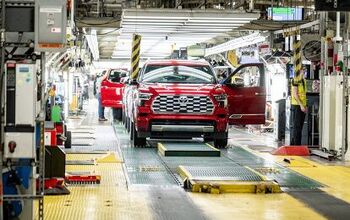


Comments
Join the conversation
VW was on its way to irrelevance in the US because of Ford's resurgence. The yuppies that used to buy VWs started buying Fords a few years ago once Ford got their act together and gave us the good stuff like the Focus, Fiesta and the 3rd Generation Fusion. Combine that with America's love affair with the Explorer and Escape and the writing was on the wall for VW, who was caught with their pants around their ankles because they didn't have an affordable midsize SUV for the masses.
I'm always surprised when people ask who buys the Touareg. The obvious answer us sone one who wants a Q7 or Cayenne at a cheaper price. Here in Vancouver I see more Touaregs than Explorers.